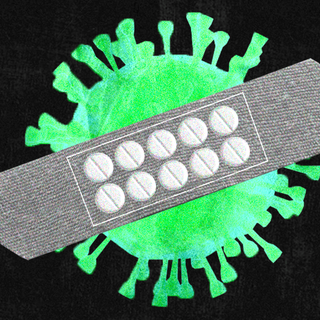The bad air we breathe is responsible for a lot of physiological and emotional damage — mostly invisible. People’s fertility is among the other things that pollution impacts, and new research offers insights on how men’s sperm quality may be deteriorating.
Published in the JAMA Networkjournal on Thursday, the study analyzed semen data frommore than 30,000 men from 340 cities in China. The men on average were 34 years old and had reasonable exposure to air pollution in general. The participants’ wives had gotten pregnant through assisted reproductive technology between 2013 and 2019. In this research, the quality of semen was gauged through factors such as sperm motility (the ability of the sperm to move in the right direction), sperm count, and concentration.
The findings establish a correlation between high air pollution and low sperm motility in general. Significantly, the likelihood of having poor sperm quality was higher when the size of the particulate matter in the air was small. For instance, if the air quality was at PM2.5 (particles have a diameter of fewer than 2.5 micrometers), a stage when the particles remain suspended in the air for a longer time, the sperm quality is likely to fall. This was more the case for sperm motility — that is, the sperm’s ability to move, or swim, properly.
“Meaning that it’s possible that different size fractions of particulate matter might have differing effects on semen quality, maybe because the smaller the particulate matter, the more likely it is to travel deeper into the human lungs,” explained The Guardian.
Research around men’s fertility and air pollution is a contested territory. Studies acknowledge the rising trend of infertility coinciding with growing air pollution, but direct causation has proven to be difficult. This may be due to the difficulty in putting the findings into context or a limited understanding of how pollution genetically impacts sperm composition.
Related on The Swaddle:
Air Pollution Might Explain the 30% of Infertility With No Known Cause: Large Chinese Study
However, we may be getting closer to narrowing in on pollution as the reason through a process of elimination. In a meta-analysis published last February, “approximately 30% of infertile couples have fertility issues that can’t be explained by hormonal imbalances, poor sperm quality, or any other known cause,” The Swaddle reported.
In the present case, the scope of the database was especially constructive to the findings. “This paper adds to the evidence base suggesting the link is real, and is impressive because it uses semen quality data from over 30,000 men,” said Allan Pacey, professor of andrology at the University of Sheffield, who was not involved in the research.
There is a general consensus around the idea that air pollution impacts the fertility of the whole population in general,and not just that of men. Some studies have even suggested the number of eggs in ovaries reduces due to pollution. A 2017 review looking at sperm quality again also concluded that air pollution has a “negative impact.”
Arguably, there are certain limitations to the current research too. Since the data doesn’t analyze information about the shape or size of the sperm, the notion that pollution changes the formation of the sperm remains tenuous. Again, whether the sperm motility decreases due to pollution or other coinciding reasons remains to be studied more.
For now, scientists urge more research on reproductive health and exposure to air pollution. That the environment and human activity-induced changes may be biologically altering the body, and impacting fertility, is a disruptive notion.




